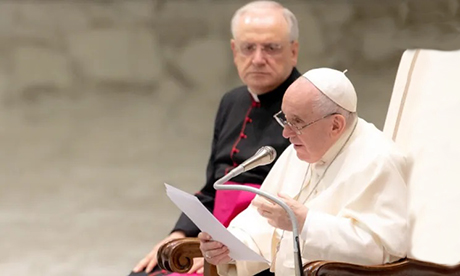Christian freedom means respecting other cultures and traditions rather than finding ways to impose “one’s own model of life as though it were the most evolved and the most appealing,” Francis said.
“This is the meaning of calling ourselves Catholics, of speaking of the Catholic Church: it is not a sociological denomination to distinguish us from other Christians. Catholic is an adjective that means ‘universal,’” Pope Francis said in the Vatican’s Paul VI Hall on Oct 13.
During his General Audience, Pope Francis explained the need to “inculturate” the Gospel “in every time and place”. That is, applying the Gospel message to different peoples and cultures.
“The Church contains within herself, in her very nature, an openness to all peoples and cultures of all times. Because Christ was born, died, and rose for everyone,” he said.
Francis said that what gives the Church her catholic identity is not the “imposition of any one cultural model” but in the truths that reside in diverse societies.
“It is not easy. There are many temptations to seek to impose one’s own model of life as though it were the most evolved and the most appealing. How many errors have been made in the history of evangelization by seeking to impose a single cultural model.”
The pope pointed to examples from Church history in which missionaries who immersed themselves deeply in other cultures were criticized by their contemporaries.
Francis mentioned the 16th-century Jesuit Fr Matteo Ricci, who spent nearly three decades in China, and another Jesuit missionary, Fr Roberto de Nobili (1577-1656), who learned Sanskrit and Tamil while ministering in India.
In his 11th live-streamed address in his cycle of catechesis on Galatians, the pope underlined that “uniformity as a rule of life is not Christian.”
“Unity yes, uniformity no,” he said.
Sources
Additional readingNews category: World.




